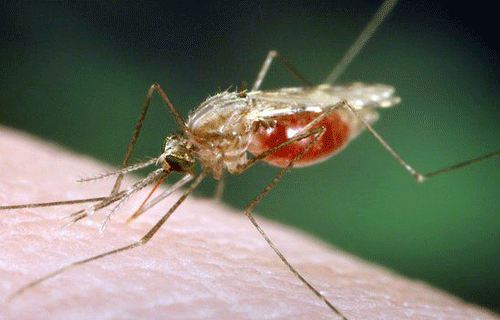TIFR Scientist from Udaipur & team comes up with potential Malaria Vaccine
The team of scientists from Tata Institute of Fundamental Research (TIFR), Mumbai have identified a group of proteins present on the malaria-spreading plasmodium parasite, and combined their finding with cutting edge genetic and nanoparticle research to produce antibodies in mice to ward off a malaria infection.

The team of scientists from Tata Institute of Fundamental Research (TIFR), Mumbai have identified a group of proteins present on the malaria-spreading plasmodium parasite, and combined their finding with cutting edge genetic and nanoparticle research to produce antibodies in mice to ward off a malaria infection. The work is however, in early laboratory stage and may take years to reach human trials.
The main researcher, Udaipur’s Dr. Gotam Jarori whose work was published in Malaria Journal says, “The need for a vaccine to control malaria has become important because of emerging resistance to existing anti-malarial pills. There are over 30 malaria vaccine candidates across the world, with the first-ever vaccine set to start field trials in Africa.”
“But our candidate-vaccine seems to have the broadest use as it could be effective against all strains of malaria,” he said. The African trial vaccine, for instance, is known to offer more protection against cerebral malaria.
The TIFR team found a fiveamino-acid segment that is of prime importance to the malarial parasite. “Each of the parasite’s cells uses this protein to break down glucose into energy,” said Dr Jarori. His team has proven that this protein is important in spreading malarial cells to the host’s red blood cells as well as within the vector mosquito’s stomach.
“Blocking this protein would thus control the disease’s spread in humans as well as break the transmission cycle among mosquitoes,” he said.
The work was carried out in collaboration with the University of Maryland School of Medicine, Baltimore, whose scientists have special nanoparticles that were genetically fused with the protein segment. This was the vaccine-candidate that was then injected into mice.
“We found that even a lethal strain of mouse malaria parasite in these vaccinated animals showed considerable protection against malaria,” said Dr Jarori.
Dr Jarori said that the work was still in early stages. “It takes long to translate laboratory work into field work. This is just a drop in a bucket, but we believe we have developed the best mechanism to vaccinate against malaria. If it works in subsequent research, it will not only protect people against all strains of malaria, but ensure that mosquitoes won’t be able to carry parasites from one person to another,” he added.
To join us on Facebook Click Here and Subscribe to UdaipurTimes Broadcast channels on GoogleNews | Telegram | Signal


